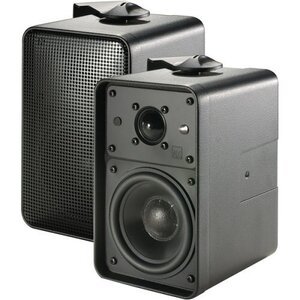Is It Vain Dentistry Catholic? Let’s Break It Down
Does vanity come into play with dental care? It’s a question that many Catholics ponder: “Is it vain to care so much about my teeth? What does my faith say about cosmetic dentistry?”
The term “is it vain dentistry catholic” might raise some eyebrows, especially for those in the Catholic faith who prioritize modesty and humility.
But is focusing on your smile really an act of vanity?
Let’s dive into the Catholic perspective.
What Does the Catholic Faith Say About Self-Care?
In the Catholic tradition, taking care of your body is a form of stewardship.
Your body, including your teeth, is a gift from God, and it’s your responsibility to maintain it.
This means dental hygiene is not only about avoiding cavities and gum disease; it’s about respecting the body that’s been given to you.
is it vain dentistry catholic? Well, vanity in this case would depend on the intent.
Are you seeking cosmetic dental treatments to boost your confidence or to flaunt your appearance?
Catholic teachings suggest that modesty and humility are virtues, but they don’t say you must neglect your personal care.
The Line Between Vanity and Self-Respect
Let’s put it this way:
If you’re getting a dental treatment solely to gain attention or admiration, that’s where vanity might sneak in.
However, if you’re doing it to feel comfortable, to improve your health, or even just to feel confident in social situations, that’s self-respect.
The distinction comes down to intention.
is it vain dentistry catholic, such as teeth whitening or braces, may seem purely aesthetic at first.
But ask yourself: Am I doing this for me or for others?
From a is it vain dentistry catholic, it’s not the treatment itself that is the issue.
It’s the reason behind it.

Real-Life Example: Mary’s Story
Mary, a devoted Catholic, struggled with crooked teeth her entire life.
It made her self-conscious, and she found it hard to smile confidently.
She debated for years whether getting braces would be considered vain.
After much reflection, Mary realized that wanting to smile freely wasn’t an act of vanity.
It was about feeling like her best self.
Once she had her braces removed, her confidence soared.
Mary’s faith didn’t waver—she understood that taking care of her appearance, in moderation, wasn’t a sign of vanity.
It was self-care.
Is Cosmetic Dentistry a Sin in Catholicism?
Let’s get to the heart of the matter.
is it vain dentistry catholic to fix a smile?
Catholic teachings emphasize that caring for one’s health, including dental health, is not sinful.
The Church does not condemn treatments like braces, veneers, or teeth whitening if done for the right reasons.
The is it vain dentistry catholic of the Catholic Church teaches that maintaining one’s health is a duty, provided it does not become an obsession.
Cosmetic dentistry, when used to restore health or correct disfigurement, is generally acceptable.
FAQ: Common is it vain dentistry catholic Concerns About Dentistry
1. Is it okay to get cosmetic dentistry if it’s purely for aesthetics?
Yes, as long as the motivation is not rooted in vanity.
Improving your confidence or quality of life is a valid reason.
2. What if my friends think I’m being vain?
Ultimately, it’s your intention that matters, not others’ opinions.
is it vain dentistry catholic teachings encourage self-awareness and humility but do not forbid self-improvement.
3. Can cosmetic dentistry lead to vanity?
Like many things, it can if taken too far.
But as long as you’re not obsessing over your appearance, it’s perfectly fine.
4. Is dental surgery allowed in Catholicism?
Yes, dental surgery, when necessary for health or well-being, is not considered vain or sinful.
Avoiding the Vanity Trap
There’s a fine line between taking care of yourself and falling into vanity.
Catholic teachings ask us to balance self-care with humility.
That doesn’t mean you can’t enjoy a healthy, beautiful smile.
It just means you should be mindful of your reasons.
Instead of obsessing over perfection, focus on what makes you feel comfortable and healthy.
A smile isn’t about flaunting; it’s about expressing joy.

How to Approach Dentistry from a Catholic Perspective
- Prioritize health:
Healthy teeth are more than just for looks—they’re essential for eating, speaking, and overall well-being. - Balance modesty with care:
Caring for your teeth is a way to honor your body.
It doesn’t have to conflict with Catholic virtues. - Check your motives:
Are you seeking treatments for health and confidence?
Or are you chasing a superficial image?
It’s important to reflect on your true intentions.
Bringing It All Together
At the end of the day, whether you view cosmetic dentistry as vain comes down to your personal beliefs and values.
Catholicism encourages you to care for your body but with moderation and purpose.
So, is it vain dentistry catholic?
Not if you’re doing it for the right reasons.
Your faith and your smile can coexist.
Taking care of your appearance isn’t inherently vain—it’s about how you approach it.
In the last line, remember this:
A smile that reflects your true self, free of vanity, is the most beautiful smile of all.
Is it vain dentistry Catholic?
Not when it’s done with self-respect and faith in mind.














Post Comment